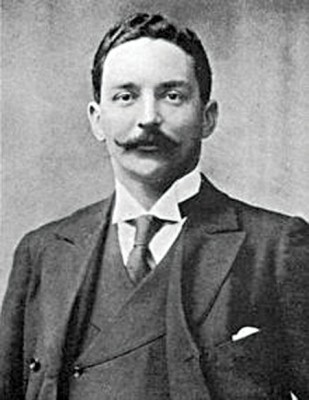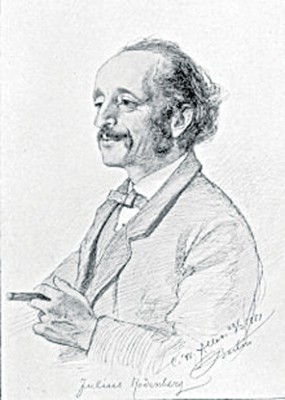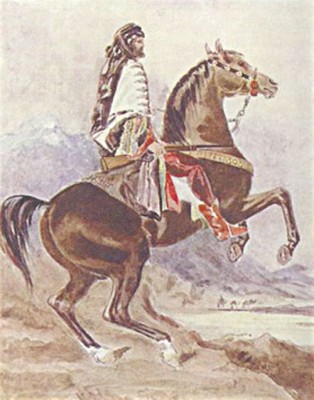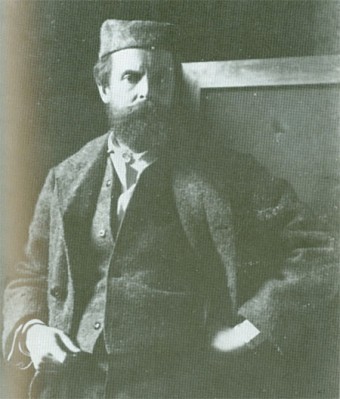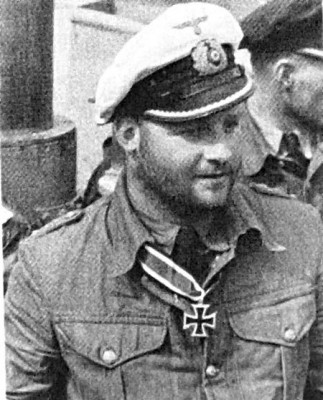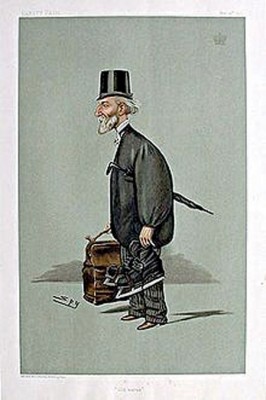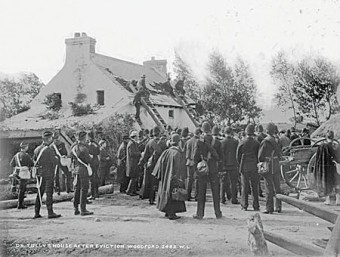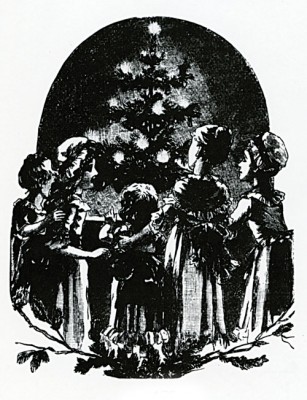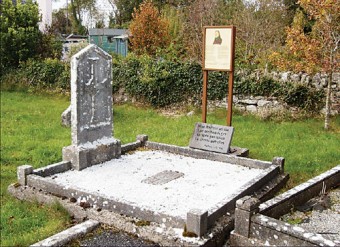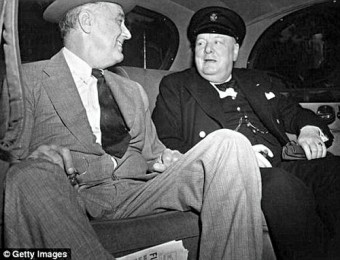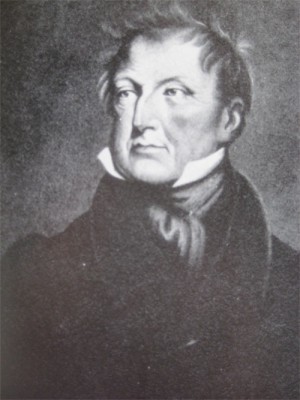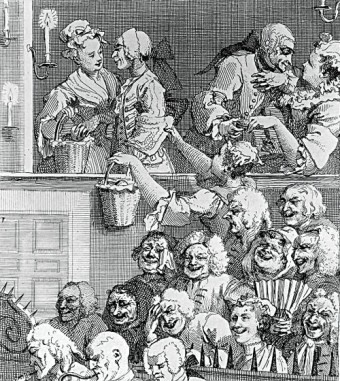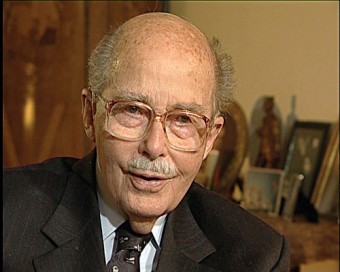White Star chairman J Bruce Ismay finds peace in the west
Thu, Apr 12, 2012
On that terrible cold night of April 14 1912, in the North Atlantic, the Titanic was sinking head first into a freezing, calm sea. It had struck an iceberg 400 miles south of the Grand Banks of Newfoundland. And was fatally wounded. The incessant bip bip bip SOS call for help from the wireless telegraphist Jack Phillips and his assistant Harold Bride was interspersed with more dramatic calls for help: “We are putting passengers off in small boats. Women and children in boats, cannot last much longer”.
Read more ...A German sees Galway through rose-coloured glasses?
Thu, Mar 22, 2012
On a wet winter’s day in 1858 Julius Rodenberg stood inside the Royal Hotel in Limerick waiting for the Bianconi ‘Royal Coach’ to Galway. It is the same Julius that I mentioned last week, who was so miserable on a Bianconi coach to Clifden. Between the years 1855 and 1862 he travelled extensively throughout Europe, and wrote numerous travel books. Despite some misgivings at the beginning of his visit to Ireland, he ended up thoroughly enjoying the hardship and its people, writing a successful book: The Island of saints - a Pilgrimage through Ireland, which was immediately translated into English*.
Read more ...Characteristics of a ‘half-civilized’ people
Thu, Mar 08, 2012
In the late 18th and mid 19th centuries, at least 28 German travel writers wrote extensively about Ireland. I’ll tell some of what a few of them had to say in the weeks ahead, but by far the most colourful was Prince Hermann Ludwig Heinrich von Puckler-Muskau. He lived his 86 years to the full. As a dashing cavalry officer he fought against Napoleon until he inherited Muskau Park near Berlin to which he added brilliant landscapes and gardens. He searched for the source of the Nile, and fought off bandits in the deserts of North Africa. He walked through much of Europe, taking notes of his observations all of which were eventually published. In 1814 he visited England and delighted the dandy Prince of Wales by introducing the rectangular monocle. His struggle with the English language caused laughter in high society, and generally he was a source of amusement; but he seemed to have enjoyed himself immensely.*
As well as his reputation as a witty writer, artist, traveller, landscape designer, bon vivant, he was a notorious womaniser. He employed Germany’s fastest sprinter, Ernst Mensen, to bring love messages to society ladies of Berlin. He created a sensation when he arrived at the fashionable Café Kranzler on the Unter den Linden, in a carriage drawn by four stags. He caused gasps when he leapt over the parapet of the Elbe bridge on horseback, the animal and its rider falling eight metres into the water below. All these shenanigans cost a great deal of money. Puckler, no doubt heartened by his reception on his previous visit, returned to England in 1826 seeking a wealthy wife. Having examined all possible candidates in London, and finding none suitable to his tastes, he travelled to Ireland because, as he wrote to his mother, he considered Ireland rather than England to be the country for finding the hoped-for prize.
Read more ...Three letters on my desk...
Thu, Feb 02, 2012
Last September I wrote a number of Diary entries on the wonderful reception that Galway extended to the survivors of the SS Athenia, torpedoed off the Donegal coast on September 3 1939, the very first day of the war. The ship was sunk by Fritz Julius Lemp, the commander of the U-30. The Athenia was obviously a passenger boat on its way with refugees from Europe to Canada. This wasn’t the start to the war that the German government wanted. Initially it denied that any of its submarines sank the Athenia, and suggested that it was sunk by the British on orders from Winston Churchill in the hope of getting America into the war.
Read more ...Extraordinary victory for the people of east Galway
Thu, Jan 26, 2012
Between 1869 and 1909 a revolution took place in land ownership in Ireland. A succession of Land Acts gradually reduced the powers of the landlord, and gave their former tenants the means and the opportunity to buy out their tenancy, and to own their own farms. Generous terms were given to tenants by the Wyndham Act of 1903. £100 million was advanced for land purchase, which was immediately availed of by the great majority of tenants. Tenants were advanced the whole purchase price of their holding, at a little over three per cent to be repaid over 68 years. Most landlords were pleased to accept the ready cash, and a whole new social structure emerged throughout the island. However, initially landlords were not compelled to sell, and the independently wealthy marquis of Clanricarde of east Galway refused to cooperate. But his days of evictions, disparaging remarks about his tenants, his bully boy land agent Edward Shaw Tener and his henchmen, were numbered.
Read more ...Fear and loathing in east Galway
Thu, Jan 12, 2012
Following the extensive publicity and extraordinary use of more than 700 military, police, emergency men and bailiffs, to evict five families from the marquis of Clanricarde’s estate, the people of Woodford and all of east Galway were in a state of shock, anger and fear. It was now clear that Clanricarde would use every method within his considerable powers to evict any of his tenants who refused to pay their rent. Despite pleas for a rent reduction because of successive bad weather, he refused to even consider it. He scoffed at John Dillon’s Plan of Campaign, supported by the Land League, which urged tenants to stick together, and to refuse to pay unreasonable rent.
Read more ...Frost and Fire, Fathers and Sons
Thu, Dec 29, 2011
Most people who care about poetry, hearing the name Samuel Taylor Coleridge, will think immediately of that wonderfully strange masterpiece, The Rime of the Ancient Mariner, Christabel, a ‘Gothic’ tale of a vampire-like woman, or, perhaps, Kubla Khan, that “vision in a dream”, possibly induced by the poet’s growing addiction to opium, but which is, nonetheless, a perfectly finished work of art.
Read more ...The Legend of the Christmas Robin
Thu, Dec 29, 2011
A chara,- The robin has excellent credentials for inclusion in religiously-themed Christmas stamps. In Irish tradition, the robin (spideog) was beannaithe, that is, blessed or holy, and had a sacred character. Various religious legends illustrated why.
Read more ...My daughter
Thu, Dec 29, 2011
Not often one gets a chance
To produce a beautiful piece of art
To produce a beautiful piece of art
Read more ...A blind poet’s love for Mary Hynes
Thu, Dec 29, 2011
South Galway still echoes with stories of Antoine O Raifteiri , and 18th century blind poet and fiddle player in the ancient bardic tradition. His best known poems are probably Cill Aodain, and Anach Cuan. He never wrote his poems down, but they were collected by Douglas Hyde, and Lady Gregory, from those whom he taught them to, after his death.
Read more ...Raftery's Praise of Mary Hynes
Thu, Dec 29, 2011
GOING to Mass by the will of God, the day came wet and the wind rose; I met Mary Hynes at the cross of Kiltartan, and I fell in love with her there and then.
I spoke to her kind and mannerly, as by report was her own way; and she said "Raftery my mind is easy; you may come to-day to Ballylee."
Read more ...Christmas in the White House, December, 1941 - a meeting that saved Europe
Thu, Dec 29, 2011
On December 7 1941 Japan launched a devastating surprise attack on the US naval base of Pearl Harbour. America declared war on Japan, and Germany declared war on the United States four days later. This was no longer just a war in Europe. It had leapt onto the worldwide stage
Read more ...Dick Martin’s reputation as a duellist struck terror into his creditor
Thu, Dec 29, 2011
Last February some readers enjoyed the tales of George Robert Fitzgerald, of Turlough, Co Mayo, known as Fighting Fitzgerald. He was an appalling man who provoked duels by his insulting behaviour, with his cronies conducted a reign of terror through Mayo, and at one time chained his father in a cave to get him to change his will. He ended on the gallows at Castlebar.
Read more ...Galway enjoyed an unusual breach of promise marriage case
Thu, Dec 29, 2011
It is not often that one reads of a man taking an action for breach of promise of marriage. Such an action was heard in the County Court-house, Galway, at the Lent Assizes of 1817. (I think it was one of the first cases heard after the opening of the building).
Read more ...Brave little Otto humbly meets his Maker
Thu, Dec 29, 2011
I was very impressed at the dignity and solemnity at the funeral of Otto von Hapsburg who died aged 94 years on July 4. Twelve days later he was entombed in the Imperial crypt of St Stephen's Cathedral, Vienna, with some pomp and ceremony; but his actual ‘ Three Knock’ burial was simplicity itself.
Read more ...The knocking ceremony
Thu, Dec 29, 2011
AFTER A requiem Mass at Vienna’s St Stephen’s Cathedral, the funeral party entered Vienna’s Capuchin Friary (Kapuzinerkirche) after the following “knocking” ceremony.
Read more ...The strange story of the virgin birth and Kinvara’s great huntswoman
Thu, Dec 29, 2011
Geoffrey Russell, fourth Lord Ampthill, died at the age of 89 last April 23. His mother Christabel, Lady Ampthill, bought Dunguaire Castle, Kinvara, Co Galway, an old tower house with a bawn and smaller tower on a creek of Galway Bay, and restored it most sympathetically. It is now owned by Shannon Development and used for mediaeval banquets.
Read more ...Best Christmas gift guide ever
Thu, Dec 08, 2011
Having had an enjoyable stroll through Galway city and county, it is abundantly clear that Galway literally has everything that anyone could possible want for Christmas, and at a price that despite the budget, we can afford. Also shopping in Galway is fun! And the shops are making every effort to meet our limited pockets by having bargains and beautifully decorated shops. Then after a hectic few hours shopping, and everyone sorted, a hot mulled cider, or a cool German beer in the Bier Keller, at the Eyre Square Christmas market tent, is a blast! Her are some of my suggestions:
Read more ...